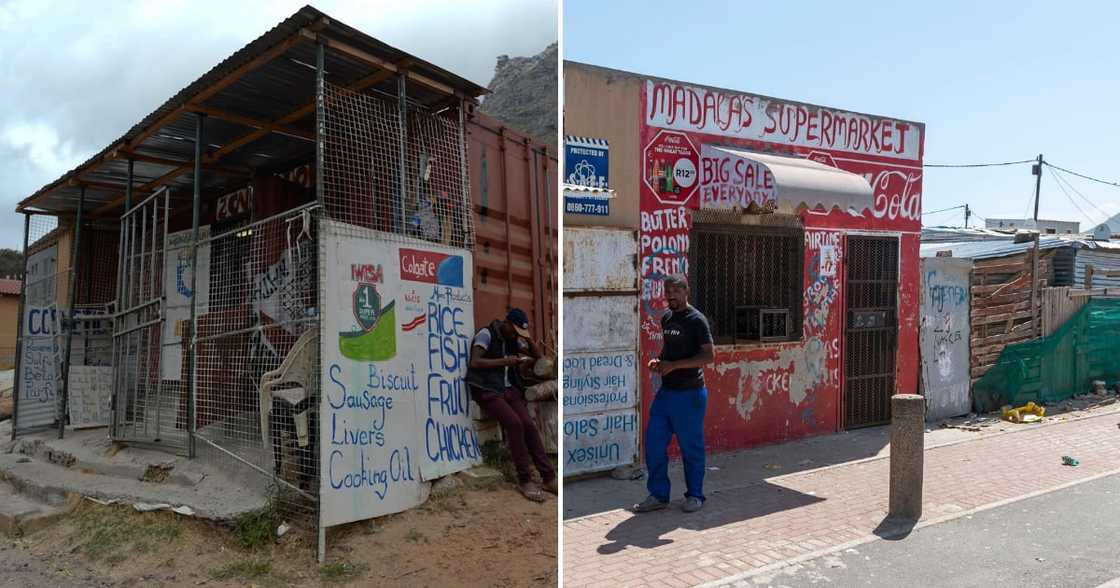Township Businesses Forced to Cut Jobs Due to Loadshedding, Report Says Food and Beverage Sector Most Affected
- Township small business owners have to deal with rolling blackouts that have made it increasingly difficult to run businesses
- According to the Nedbank Insights Report, loadshedding has forced some businesses owners to cut jobs
- The food and beverage sectors seem to be the most impacted because they rely on a constant electricity supply to function
PAY ATTENTION: Never miss breaking news – join Briefly News' Telegram channel!
JOHANNESBURG - Loadshedding has had a devasting impact on township businesses and employment in South Africa.

Source: Getty Images
According to the Nedbank Insights Report, which was conducted with the Township Entrepreneurs Alliance (TEA), 64% of small township businesses shut down during loadshedding and nearly 66% of business owners have cut jobs as a result of rolling blackouts.
Food and beverage sector most affected by loadshedding
According to News24, businesses in the food and beverage sector cut jobs primarily because of the impact of rolling blackouts. The manufacturing industry also had to shed a significant number of jobs.
PAY ATTENTION: Follow Briefly News on Twitter and never miss the hottest topics! Find us at @brieflyza!
Speaking to the publication, KwamMashu Business Chamber spokesperson Sandile Sangweni explained the food and beverage sector is the most impacted because business owners have perishable stock that needs refrigeration to stay fresh.
With the power cuts, businesses such as shishanyamas, corner shops and butcheries can't keep their stock fresh and incur more costs because they have to throw out rotten goods.
In some instances, local restaurants can't prepare food when there is no power, which means an additional loss of income.
Mlungisi Mazana, the chairperson of the Gugulethu Business Forum, explained that loadshedding is the direct cause of the dip in economy.
"It creates unemployment and poverty. Those businesses are small, but they employ one or two people. People are losing their livelihoods," said Mazana.
Although South Africa's unemployment rate decreased to 32.7% in Q4, more job losses could devastate the country's economy. According to BusinessTech, the number of unemployed people increased by 28 000 to 7.8 million in the fourth quarter of 2022.
Loadshedding heading to Stage 5
While some businesses have turned to alternative energy sources for electricity, other small businesses simply do not have the funds.
Things are about to worsen for these businesses because Eskom is implementing Stage 5 on Tuesday, 11 April, from 4pm until 5am on Wednesday.
Eskom spokesperson Daphne Mokwena stated that two generation units at Lethabo and Mepudi power stations are back online.
According to EWN, Eskom is increasing loadshedding because two generating units at Kriel Power Station and one at Kendal Power Station were taken offline for repairs.
This means South Africans will have to deal with Stage 3 and Stage 5 loadshedding for the next few days.
How are township businesses essential for job creation in South Africa and generation of R400 billion?
Briefly News previously reported that the township economy has shown significant growth in the past few years, and it has been estimated that it generates around R400 billion annually.
While people living in townships are normally low earners or living in poverty, they play a significant role in growing their economy and boosting local brands.
Approximately 11.5 million South African citizens live in townships, which translates to a quarter of the South African population. While some townships are still developing and growing, there is no doubt that most people living there are not well off.
PAY ATTENTION: Сheck out news that is picked exactly for YOU ➡️ click on “Recommended for you” and enjoy!
Source: Briefly News

